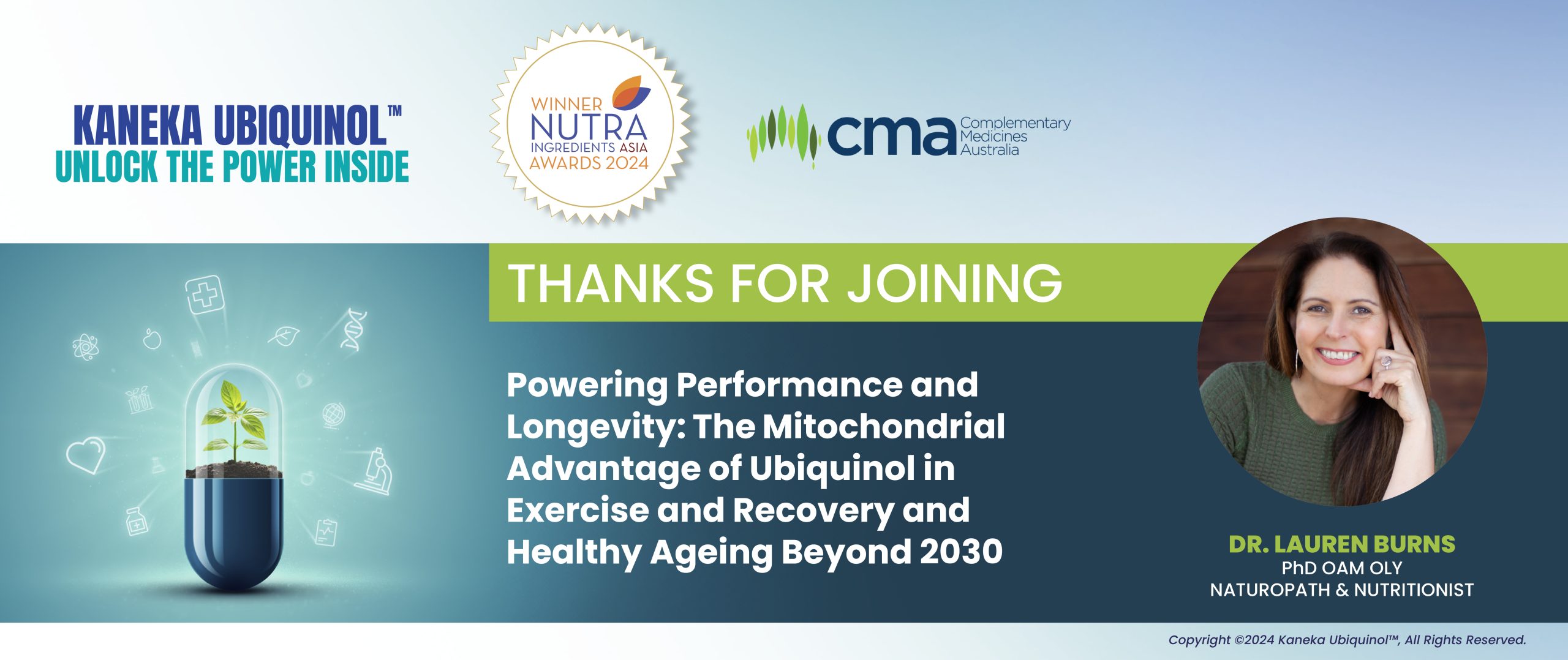
Kaneka Ubiquinol™ at ACNEM Fertility Roundtable
Aug 2024Recent Article
Practitioner Discussions on Supporting Fertility
In Australia, 1 in 6 couples experience infertility.(1) This means 15% of couples have trouble conceiving naturally or carrying a pregnancy to term. The changing fertility landscape is affected by diverse variables such as age of conception, metabolic health, environmental exposures, genetic mutations, lifestyle factors and increasingly common conditions such as polycystic ovary syndrome (PCOS) and endometriosis. Unravelling the complexity of these influences can be difficult.
The ACNEM fertility roundtable brought together Australian experts, Dr Leah Hechtman (PhD), Dr Nicole Bijlsma (PhD), Carolyn Ledowsky and Dr Miranda Myles, to discuss contemporary thinking on issues influencing fertility, including:
Metabolic and mitochondrial health: The field of metabolic and mitochondrial health and fertility is continuously evolving, with the latest research and thinking discussed by a well-respected naturopath and author and global authority on women’s health and fertility, Dr Leah Hechtman.
Environmental influences: The body of evidence documenting environmental influences on fertility continues to grow rapidly. Dr Nicole Bijlsma, shared her insights on the role of toxins, heavy metals, pollutants and radiation, as well as where to look for environmental insults, how to deal with them and how to help your patients avoid them.
Methylation and fertility: Carolyn Ledowsky discussed her findings in the literature and her research on the effects of methylation SNPs on fertility and miscarriage. These insights inform a contemporary approach to optimising fertility.
Ageing and fertility: Changing social norms have seen many couples delay conception, which can significantly impact fertility. Understanding key issues and the latest evidence-based interventions can dramatically improve outcomes for this cohort. Dr Miranda Myles shared her clinical wisdom regarding older patients and how to support and optimise fertility.
Supporting patients during assisted reproduction: As more couples use these technologies, understanding what evidence-based integrative interventions help to improve outcomes is an important insight.
The event was hosted by Andrew Whitfield Cook, a well-known podcaster who contributed his own insight, wisdom, and experience to this important conversation.
This esteemed panel imparted a vast range of pearls of wisdom:
- Ageing decreases fertility in women over 35 years
- Sperm count in men is decreasing by 2.5% each year
- Women are putting 400-600 chemicals on their skin every day via cosmetics, perfumes and fragrances
- Chemical exposure and toxins in modern day environment hugely impacts health and fertility rates via endocrine disruptors such as pesticides, mould, plastics, food packaging and microwave popcorn
- Evidence shows Ubiquinol is a precursor to all fertility pathways for men (sperm) and women (ova)
- The amount of Ubiquinol we need is higher than what our bodies are able to produce
- Introduction of Ubiquinol in early pre-conceptions care assists with healthy, successful fertility
The Fertility Roundtable was a fascinating insight into the latest thinking on all issues relevant to understanding, supporting and optimising the fertility for patients.
If you missed it, the presentation will be available on the ACNEM Online Learning Platform https://online.acnem.org/
Always read the label and follow the directions for use.
About Dr Leah Hechtman (PhD)
Dr Leah Hechtman (PhD) is a globally respected naturopathic clinician, a revered lecturer, and a sought-after keynote speaker. Driven by her insatiable curiosity and a passion for the nexus of science and spirituality, Dr. Hechtman (PhD) constantly endeavors to enhance her understanding of medicine. She shares her insights through lectures, events, and programs. Widely recognised for her expertise, Dr Hechtman (PhD) receives numerous referrals from specialists and fertility clinics on a global scale.
References:
- Bagade T, et al. Investigating the association between infertility and psychological distress using Australian Longitudinal Study on Women’s Health (ALSWH). Sci Rep 2022;12(1):10808.
You can share this by:
Keep up-to-date with Ubiquinol News
Ubiquinol Headlines

Retail Pharmacy: Healthy Ageing in the Spotlight
Apr 2025Category: Ageing, Antioxidants, APP, Conference, Conferences, Endurance, Health, Health Industry, healthy ageing, Immunity, In The News, Mitochondrial health, Nutrition, Online, Stress, Ubiquinol, Vitamins, wellnessRead More
Retail Pharmacy: The Impact of Loneliness on Heart Health
Apr 2025Category: cardiovascular health, dr ross walker, Heart, In The News, Mitochondrial health, Online, UbiquinolRead More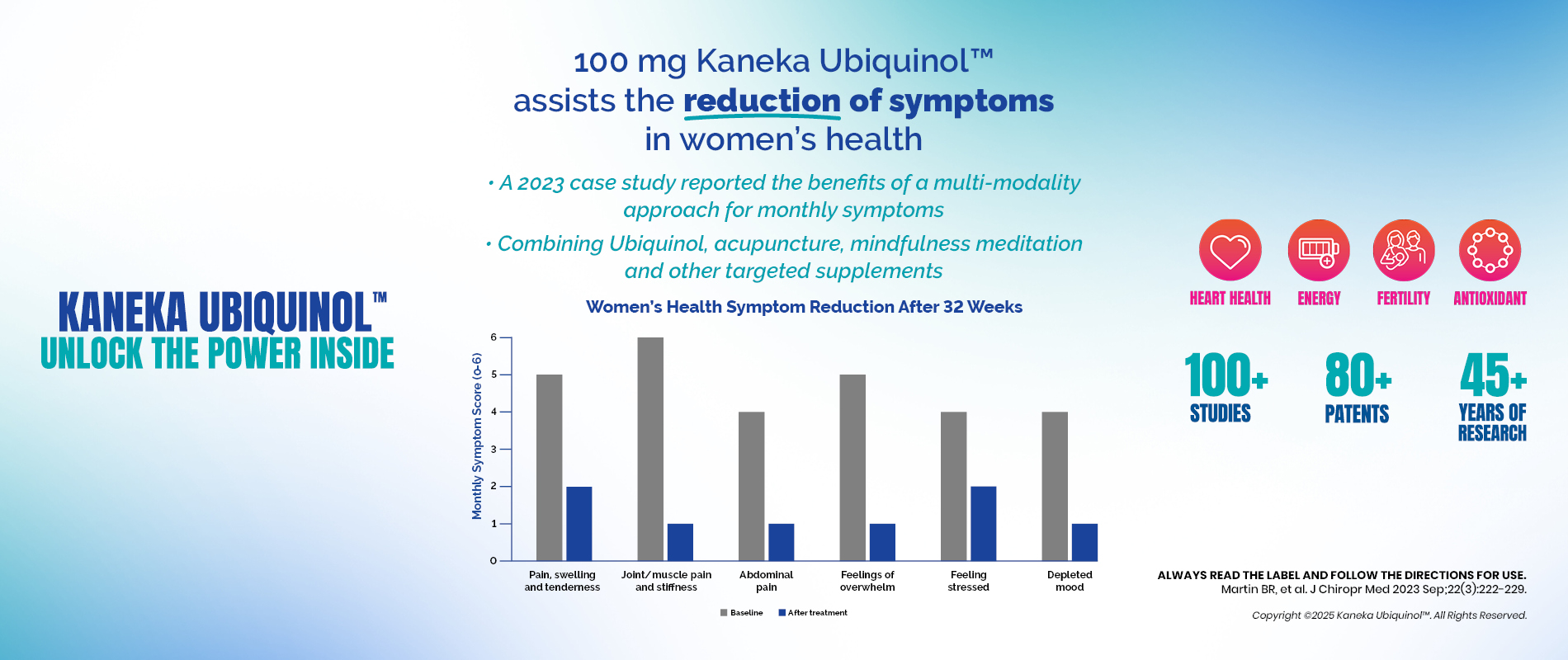
Ubiquinol for Women’s Health
Apr 2025Category: Ageing, Antioxidants, Fertility, Kaneka, Mitochondrial health, Ubiquinol, wellness, Women's HealthRead More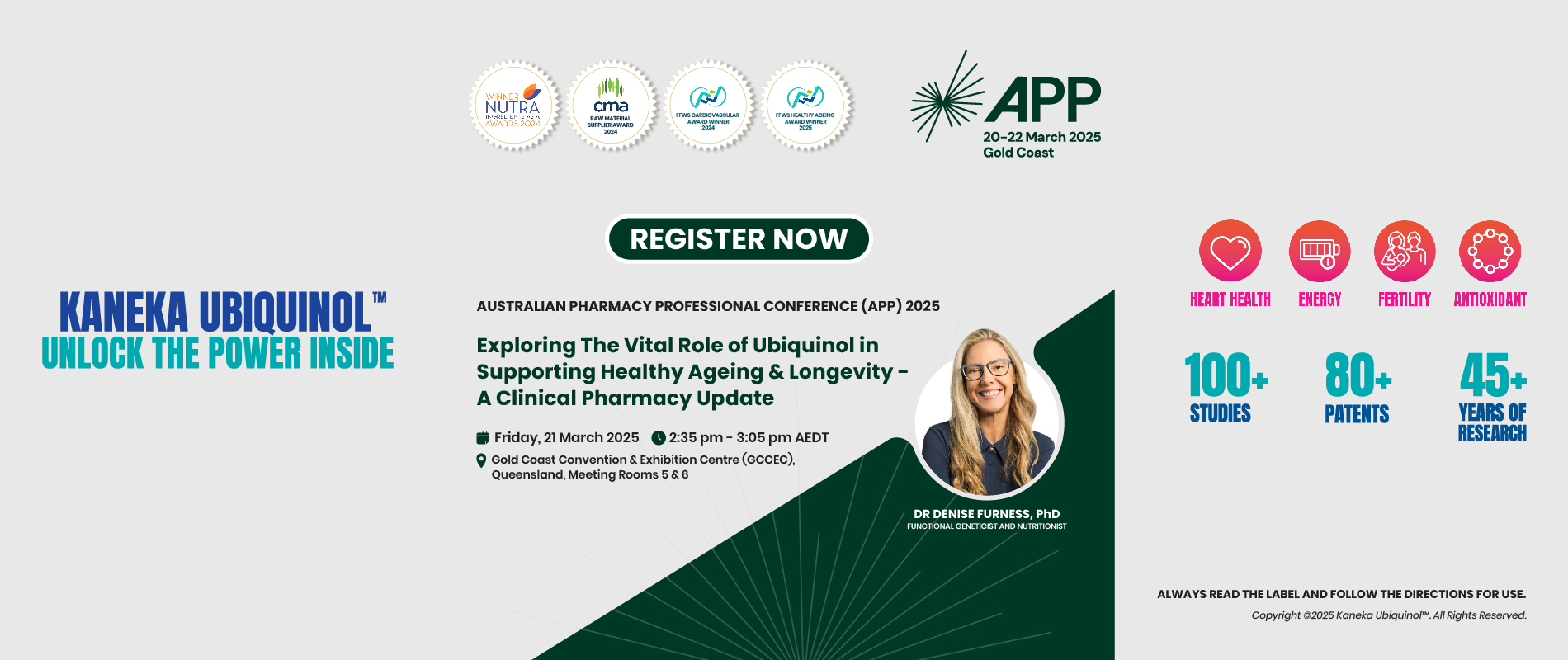
Kaneka Ubiquinol™ at APP 2025: Advancing Healthy Ageing & Longevity
Mar 2025Category: Ageing, Antioxidants, APP, Conference, Conferences, Energy, Fatigue, Health, Health Industry, healthy ageing, Kaneka, Mitochondrial health, Nutrition, UbiquinolRead More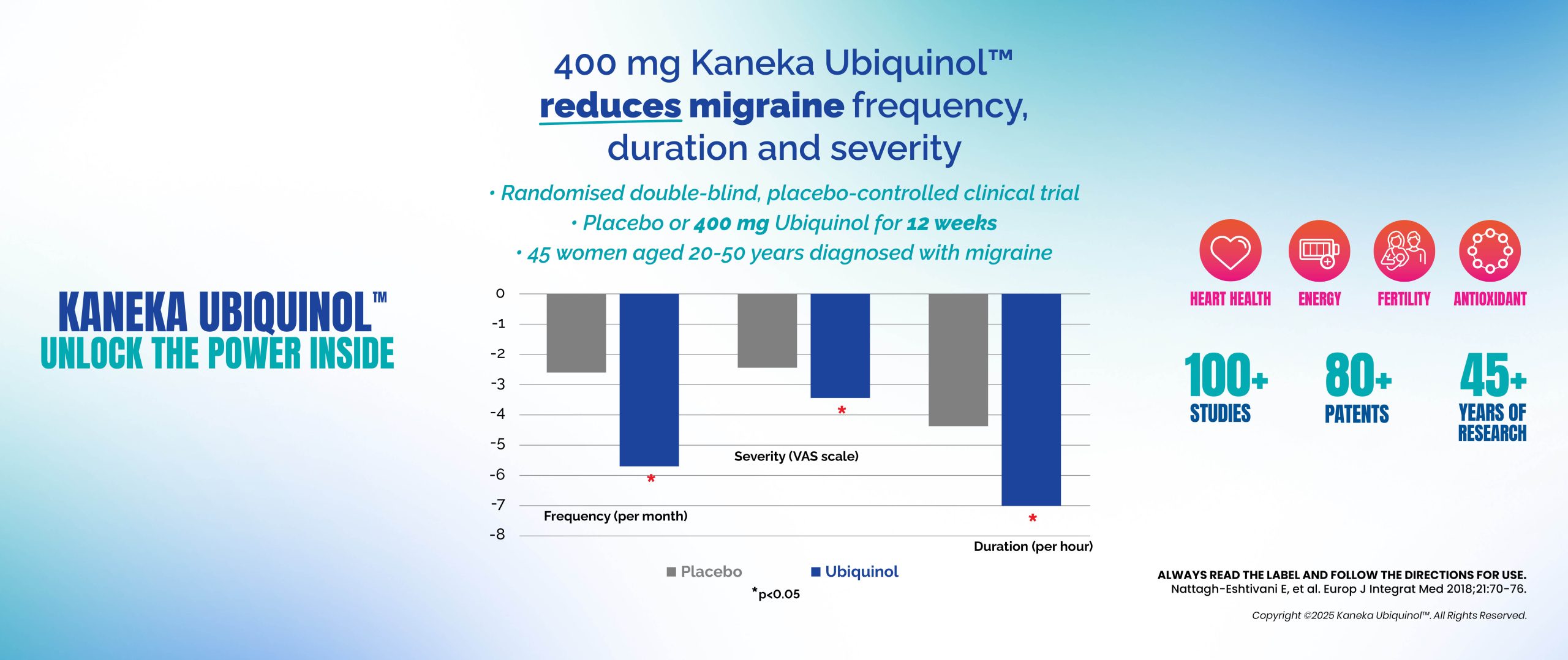
Ubiquinol: Supporting Migraine Relief Through Cellular Energy
Jan 2025Category: Antioxidants, complementary medicine, Energy, Fatigue, Health, Health Industry, healthy ageing, Kaneka, Mitochondrial health, Nutrition, Stress, Ubiquinol, Vitamins, wellnessRead More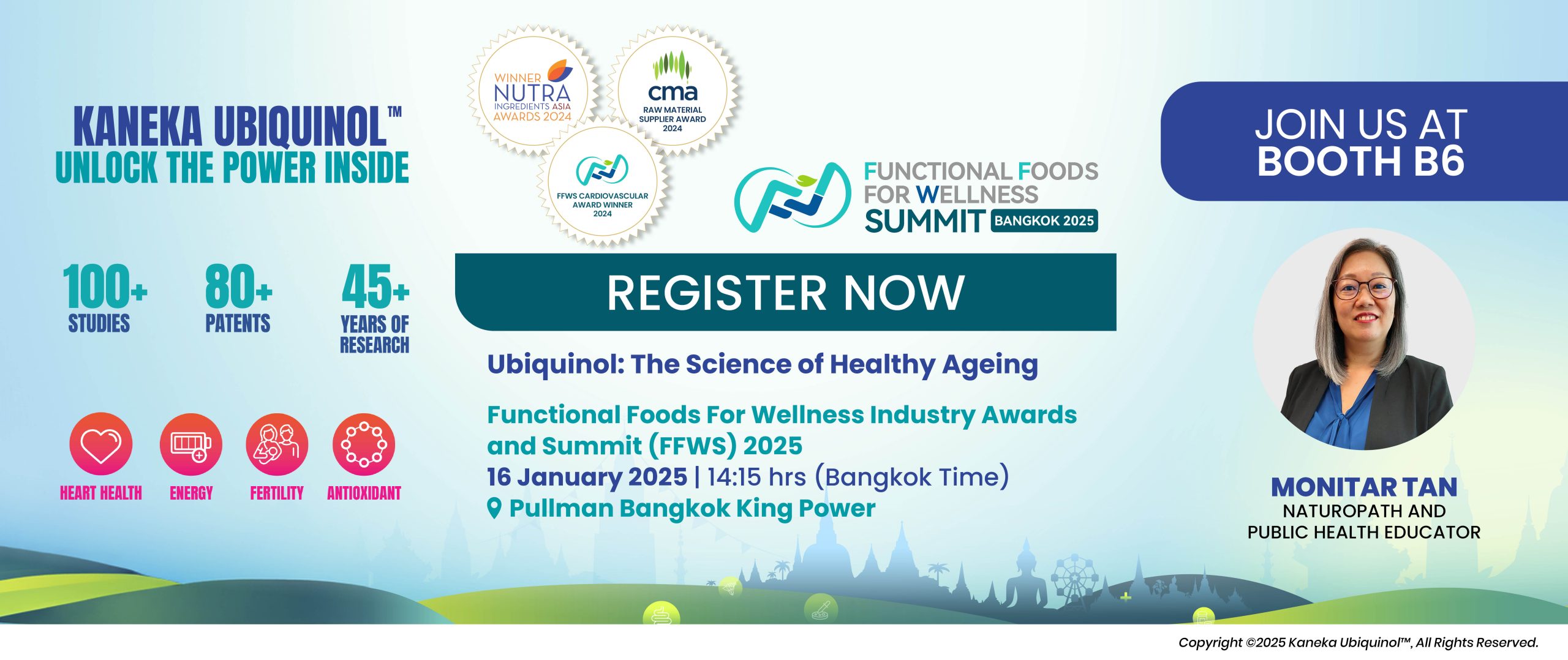
Kaneka Ubiquinol™ at Functional Foods for Wellness Industry Awards and Summit, #FFWS2025
Jan 2025Category: Ageing, Antioxidants, Awards, cardiovascular health, Conference, Conferences, Energy, Fatigue, FFWS2025, Health, Health Industry, healthy ageing, Kaneka, Menopause, Mitochondrial health, Nutrition, Ubiquinol, VitaminsRead More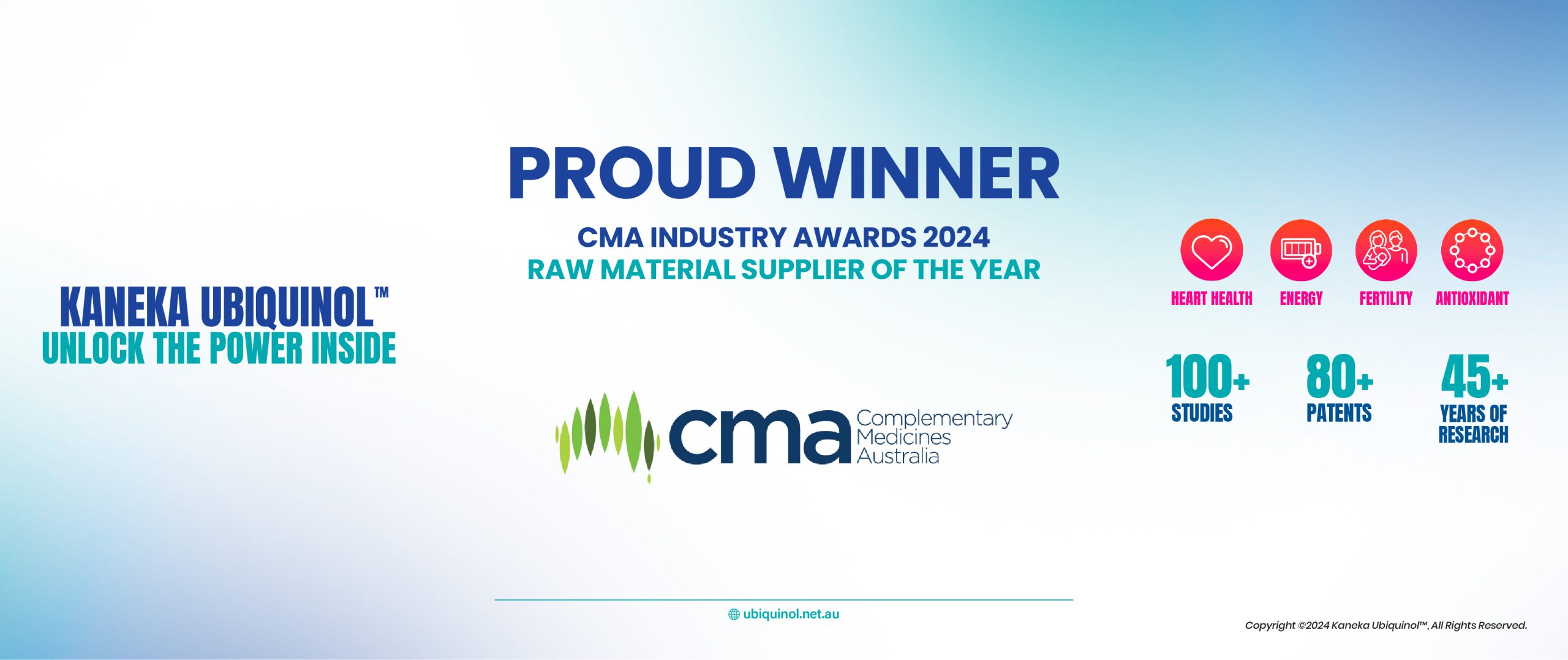
Kaneka Ubiquinol Wins Prestigious Complementary Medicines Raw Material Supplier of the Year Award 2024
Dec 2024Category: Ageing, Awards, cardiovascular health, complementary medicine, Conference, Conferences, Endurance, Energy, Fatigue, Fertility, Fitness, Health, Health Industry, healthy ageing, Heart, Immunity, In The News, Kaneka, Lungs, Memory, Mitochondrial health, Nutrition, Online, Stress, Ubiquinol, Vitamins, wellnessRead More